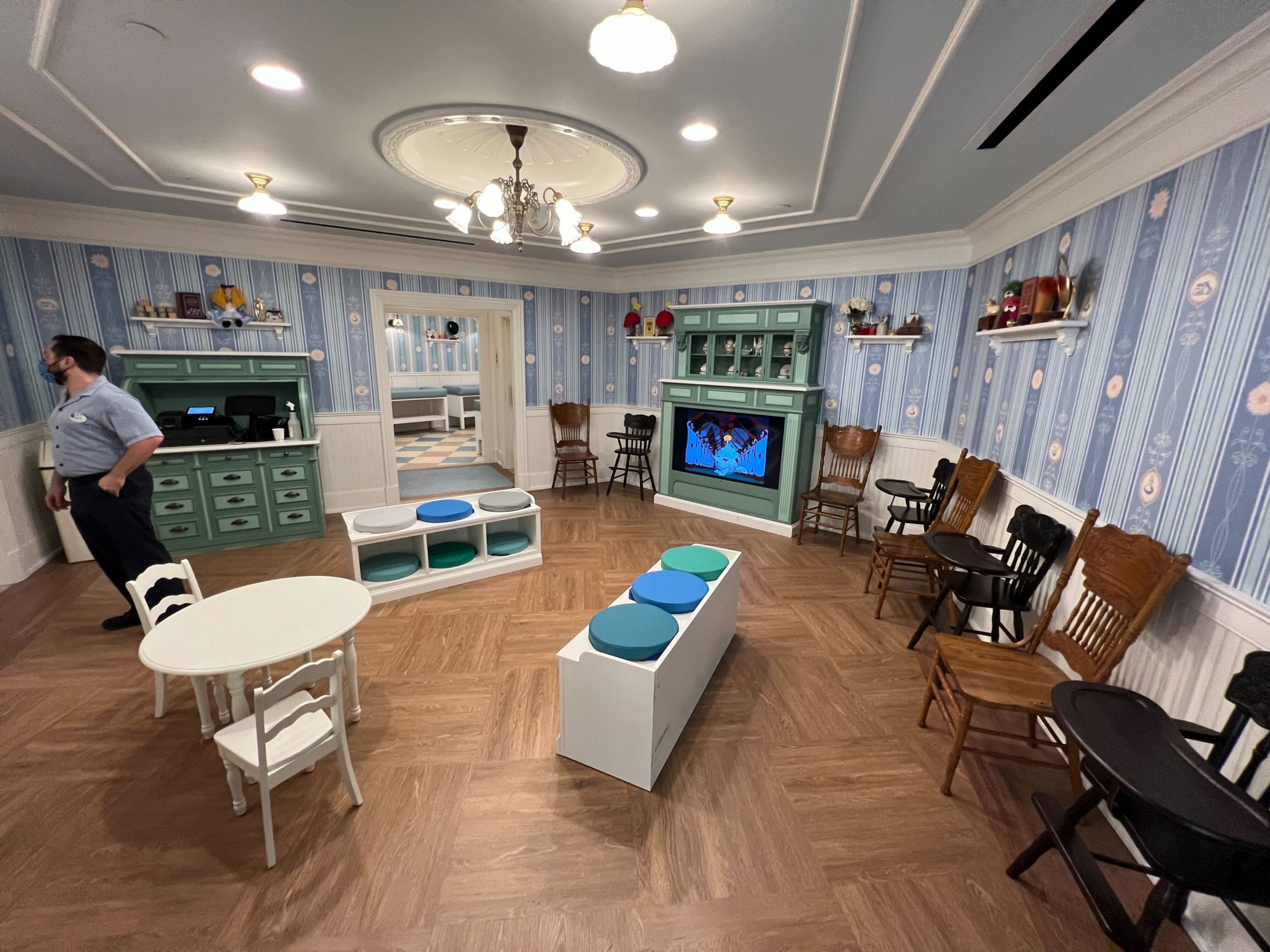Couplet Baby Care in Rooming-In: The Ultimate Guide.
Rooming-in at couplet baby care provides parents with the opportunity to care for their infants in their hospital room, promoting bonding and faster recovery..

Credit: www.uchicagomedicine.org
Benefits Of Rooming-In For The Baby And Parents
Couplet baby care in rooming-in: benefits of rooming-in for the baby and parents
Rooming-in is a practice where babies are kept in the same room as their parents in the hospital post-birth. It provides numerous benefits to both the baby and the parents. In this section, we will explore some of the benefits that rooming-in can provide.
Increased Bonding Between The Baby And Parents
Rooming-in can significantly increase the bonding between the baby and the parents. The constant presence of the baby with the parents can help to build a strong attachment. The baby can hear the parents’ voice, smell them and feel their warmth, which can reassure the child and make them feel safe.
Bonding is not just an emotional connection, but it is also a biological process that promotes the baby’s overall development.
Better Sleep For The Baby And Parents
Rooming-in can provide better sleep for both the baby and parents. When the baby is in the same room, parents do not need to walk to a different room to check on their baby. This saves them from disrupting their own sleep and provides comfort to the baby.
The mother can observe the baby’s sleeping patterns, and this can help in detecting any issues that may arise.
Improved Breastfeeding And Milk Production
Rooming-in provides an added advantage of boosting breastfeeding and milk production. The baby being in the same room as the mother can lead to frequent breastfeeding sessions, which is crucial for the baby’s growth and development. Moreover, the mother can also monitor the baby’s feeding routine and feel more confident in her skills as a mother.
Reduced Risk Of Infections And Illnesses
Rooming-in promotes a decreased risk of infections and illnesses. The mother’s milk can provide essential nutrients that can boost the baby’s immunity system. Research shows that babies who stayed in the same room as their mothers have lesser chances of getting infections and illnesses than those who are sent to the nursery.
Enhanced Parental Confidence And Competence
Rooming-in helps boost parental confidence and competence, making them feel more comfortable caring for the baby. This can help first-time parents to learn the basics of childcare more effectively. Being in the same room with the baby and having the opportunity to watch the healthcare professionals can teach parents how to properly care for the baby.
Rooming-in is a practice that can provide numerous benefits to the baby and the parents. From increased bonding to better sleep and improved breastfeeding, parents who choose rooming-in can offer their children a tremendous advantage and peace of mind.
Understanding Couplet Baby Care In Rooming-In
Definition And Components Of Couplet Baby Care
Couplet baby care is a practice that revolves around keeping the mother and their newborn in the same room, promoting bonding, and providing mutual care.
- Placing the mother and baby in the same room
- Encouraging breastfeeding
- Monitoring the baby’s feeding, output, and temperature
- Treating the mother and baby as a unit
- Allowing the parents to participate in the care of their newborn
Responsibilities Of Healthcare Providers And Parents In Couplet Baby Care
Both healthcare providers and parents have distinct responsibilities in couplet baby care.
Healthcare Providers:
- Providing prenatal education on the benefits of couplet baby care
- Assisting mothers with breastfeeding
- Observing and assessing the newborn for any concerns
- Providing education on newborn care and ensuring the parents’ competence
- Offering emotional support and encouragement to parents.
Parents:
- Participating in the care of the newborn
- Breastfeeding or bottle-feeding the baby
- Notifying healthcare providers of any concerns
- Learning about infant care.
The Importance Of Communication Between Healthcare Providers And Parents
Communication is one of the crucial factors that enhance couplet baby care.
- It creates a mutual understanding between healthcare providers and parents, which fosters trust, respect, and a more effective relationship.
- It informs parents of what to expect, including the benefits of these practices and how to participate.
- Parents can voice their concerns to healthcare providers, who can offer reassurance, education, or intervention when necessary.
- Healthcare providers can offer additional support and guidance more efficiently, leading to a decrease of readmission rates.
Couplet baby care is a practice that promotes the overall well-being of the newborn and a positive experience for the parents. Effective communication, education, and collaboration between healthcare providers and parents are crucial for the success of this practice.
Best Practices For Couplet Baby Care In Rooming-In
Couplet Baby Care In Rooming-In
Preparation for couplet baby care in rooming-in can be a challenging adjustment for new parents. It’s a new experience, which will demand some adaptation. It is essential to create a consistent care routine to provide the best care for the little one.
We will cover the best practices for couplet baby care in rooming-in, including skin-to-skin contact and breastfeeding techniques, diapering, bathing, and dressing the baby, monitoring the baby’s health and development, and identifying and addressing common concerns and challenges.
Skin-To-Skin Contact And Breastfeeding Techniques
Newborns need lots of skin-to-skin contact with their parents in the first days of their life as it helps in regulating the baby’s heart rate, body temperature, breathing, and blood sugar levels. Furthermore, skin-to-skin contact leads to better breastfeeding as it encourages the baby’s breastfeeding reflexes while keeping the baby warm.
Here are some techniques to remember when practicing skin-to-skin contact and breastfeeding techniques:
- Place the baby on the mother’s chest, bare, right after delivery for optimal skin-to-skin contact.
- Try latching your baby onto your breast within the first hour of birth to encourage successful breastfeeding.
- Look out for cues indicating that the baby is hungry, e. G. , crying, sucking fists, lip-smacking, and putting hands to mouth.
- Different breastfeeding positions can help keep the baby comfortable during feeding; try different breastfeeding positions to find the most comfortable one for both the mom and the baby.
Diapering, Bathing, And Dressing The Baby
A newborn’s skin is fragile, which means that care is needed when changing, bathing, and dressing the baby; use mild soap, baby shampoo, and avoid using scented or perfumed products.
- Use soft wipes and warm water, gently wiping from front to back, to prevent infections.
- Bathe the baby only when necessary, using a basin of warm water, and consider sponge baths for the first week.
- Use mild detergent on baby clothes and wash them separately from regular laundry with extra rinses.
- Dress the baby in clothing appropriate for the weather and environment.
- Ensure the baby is kept warm enough but avoid overheating them.
Monitoring The Baby’S Health And Development
In-room newborn care requires careful monitoring to ensure the baby is healthy and developing normally.
- Track the baby’s feeding and diapering habits to make sure they are getting adequate nutrition.
- Monitor the baby’s vital signs, including temperature, heart rate, breathing rate, and weight.
- Be attentive and aware of any changes in the baby’s behavior or health and contact medical professionals immediately if you have any concerns.
Identifying And Addressing Common Concerns And Challenges
Identifying and addressing common issues that arise with new parents’ experiences is crucial in providing the best couplet baby care in rooming-in.
- Engorgement or sore breasts: Seek assistance from healthcare professionals and use warm compresses or breast massage to relieve pain.
- Lack of sleep: Share the parenting duties with your partner and take naps when the baby sleeps.
- Separation anxiety: Try not to leave the baby alone for extended periods.
Providing couplet baby care in-rooming requires patience, practice, and guidance. These best practices will give parents the confidence to provide the best care for their newborn baby.
Frequently Asked Questions Of Couplet Baby Care In Rooming-In
What Is Couplet Baby Care?
Couplet baby care means keeping mother and baby together in one room for better bonding.
What Are The Benefits Of Rooming-In?
Rooming-in helps in initiating breastfeeding, facilitating mother-baby bonding and improving sleep patterns.
Is It Safe To Room-In With A Newborn?
Yes, it is safe to room-in with a newborn as the mother can always keep an eye on the baby and attend to their needs promptly.
How Does Couplet Care Help In Managing Postpartum Depression?
Couplet care can help in managing postpartum depression by providing emotional support and promoting mother-baby bonding.
What Can I Expect During My Rooming-In Stay At The Hospital?
During your rooming-in stay at the hospital, you can expect to receive education on baby care, lactation support, and ample opportunities for skin-to-skin contact with your baby.
Conclusion
After all, rooming-in with your newborn and practicing couplet care can be beneficial for everyone involved. It encourages bonding between the caregiver and infant, supports breastfeeding, and allows for consistent care throughout the day and night. By working with hospital staff and following proper hygiene guidelines, parents can successfully provide the round-the-clock care their baby needs while alleviating any stress that may come with separation.
Additionally, this method has been shown to increase parental confidence and can lead to positive long-term health outcomes for both the baby and parents. Overall, couplet care in rooming-in is a safe and effective way to provide optimal care for newborns and their families.






